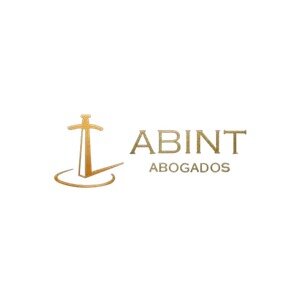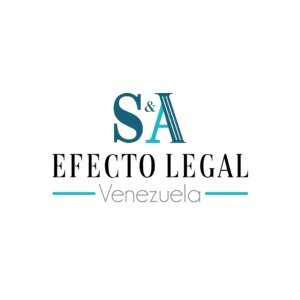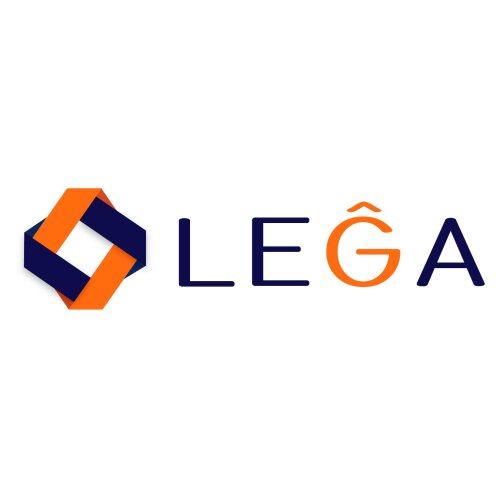Best Renewable & Alternative Energy Lawyers in Venezuela
Share your needs with us, get contacted by law firms.
Free. Takes 2 min.
Or refine your search by selecting a city:
List of the best lawyers in Venezuela
About Renewable & Alternative Energy Law in Venezuela
Venezuela is traditionally known for its vast oil reserves, but in recent years, there is increasing interest in renewable and alternative energy sources. Major sources include hydropower, solar, and wind. While hydropower already supplies a large portion of national electricity, the Venezuelan government is taking gradual steps to diversify the energy matrix and encourage the use of renewable and alternative energy sources. Laws and regulations are evolving to address issues like energy generation, distribution, environmental impacts, and private sector participation. Understanding the legal landscape is crucial for anyone interested in contributing to this emerging sector.
Why You May Need a Lawyer
Legal assistance is recommended in several typical situations involving renewable and alternative energy in Venezuela:
- Starting a renewable energy project, such as developing a solar or wind farm
- Seeking government permits or concessions for energy generation and distribution
- Negotiating land rights, especially for large-scale installations
- Understanding environmental compliance and impact assessments
- Dealing with regulatory authorities or navigating government incentive programs
- Handling contracts with state-owned or private energy providers
- Resolving disputes related to energy distribution or project implementation
- Importing equipment or technology for use in renewable energy projects
A lawyer with expertise in renewable energy law can help ensure compliance with evolving regulations, protect your interests, and facilitate smooth project development.
Local Laws Overview
The legal framework for renewable and alternative energy in Venezuela involves several key aspects:
- National Constitution of Venezuela - Recognizes state ownership of subsoil resources but allows for private participation under regulations.
- Organic Law on Electrical Power Services - Governs electricity generation, transmission, and distribution, with specific references to renewable energy integration.
- Special Renewable Energy Incentives - The government has implemented incentives to promote non-conventional energy sources, though the application can be subject to regulatory discretion.
- Environmental Regulations - Any renewable energy project must comply with environmental impact studies and clearance from the Ministry of Ecosocialism (Ministerio del Poder Popular para el Ecosocialismo).
- CONVEMAR Treaty - Applies to offshore projects, including potential marine wind or tidal energy installations.
- Import Rules - Equipment for renewable energy projects may be subject to import restrictions, duties, or tax benefits.
- Private-Public Collaboration - Most large projects require some form of partnership or authorization from the national government.
Regulation in this area continues to evolve. It is important to consult the latest government decrees and monitor new legal developments related to Venezuela's national energy agenda.
Frequently Asked Questions
What renewable energy sources are most common in Venezuela?
Hydropower is the most significant, but there is growing interest in solar, wind, and biomass energy sources.
Do I need a government permit to install a solar panel system?
Yes, for most large-scale or grid-connected systems, permits are necessary from the Ministry of Electric Power, as well as local authorities.
Can private companies generate and sell renewable energy in Venezuela?
Yes, but operations are subject to government regulation, and agreements with the national grid operator are typically required.
Are there incentives for investing in renewable energy?
The government has created some incentives, including possible tax benefits and import duty relief, but the availability and application are assessed case by case.
What environmental permits are needed for a renewable energy project?
Most projects must undergo environmental impact assessments and receive approval from the Ministry of Ecosocialism before starting construction.
Is it possible to export renewable energy from Venezuela?
In practice, energy exports are strictly controlled and require national government approval, making such projects uncommon for private entities.
How is electricity from renewable sources priced and sold?
Pricing is regulated by the government. Sales to the grid typically require contracts with the state-owned electricity company (CORPOELEC).
What legal risks should project developers be aware of?
Risks include regulatory changes, potential expropriation, exchange controls affecting imported equipment, and state intervention in energy matters.
Who owns the energy infrastructure in Venezuela?
Most of the national energy infrastructure is state-owned, but private ownership of small-scale and off-grid systems is possible under certain conditions.
What is the process for importing renewable energy technology?
Imports are subject to permit requirements, and in some cases, import duties may be reduced or waived as part of incentive programs. Compliance with customs and technical standards is essential.
Additional Resources
If you are seeking more information or assistance, the following resources may be helpful:
- Ministry of Electric Power (Ministerio del Poder Popular para la Energía Eléctrica) - Regulatory body for electricity matters
- Ministry of Ecosocialism (Ministerio del Poder Popular para el Ecosocialismo) - Authority on environmental permits and impact assessments
- NATIONAL ELECTRIC CORPORATION (CORPOELEC) - State-owned company responsible for electricity distribution
- Chamber of Venezuelan Renewable Energy Industry (CÂMARA VENEZOLANA DE ENERGÍAS RENOVABLES) - Industry advocacy and information
- Embassies or trade offices specializing in renewable energy investments
Engaging with these organizations, along with professional legal counsel, can help you stay informed and compliant in this evolving field.
Next Steps
If you need legal assistance regarding renewable or alternative energy in Venezuela, consider the following actions:
- Identify your project's specific legal needs, such as permits, contracts, or land rights
- Gather all relevant documents and project information
- Consult with a lawyer or legal firm experienced in energy law and Venezuelan regulations
- Contact relevant government agencies early in your planning process to clarify requirements and timelines
- Monitor regulatory updates and maintain compliance throughout your project
Taking these steps will help ensure that your involvement in renewable and alternative energy is legally sound and positioned for success within Venezuela's complex regulatory environment.
Lawzana helps you find the best lawyers and law firms in Venezuela through a curated and pre-screened list of qualified legal professionals. Our platform offers rankings and detailed profiles of attorneys and law firms, allowing you to compare based on practice areas, including Renewable & Alternative Energy, experience, and client feedback.
Each profile includes a description of the firm's areas of practice, client reviews, team members and partners, year of establishment, spoken languages, office locations, contact information, social media presence, and any published articles or resources. Most firms on our platform speak English and are experienced in both local and international legal matters.
Get a quote from top-rated law firms in Venezuela — quickly, securely, and without unnecessary hassle.
Disclaimer:
The information provided on this page is for general informational purposes only and does not constitute legal advice. While we strive to ensure the accuracy and relevance of the content, legal information may change over time, and interpretations of the law can vary. You should always consult with a qualified legal professional for advice specific to your situation.
We disclaim all liability for actions taken or not taken based on the content of this page. If you believe any information is incorrect or outdated, please contact us, and we will review and update it where appropriate.
Browse renewable & alternative energy law firms by city in Venezuela
Refine your search by selecting a city.













